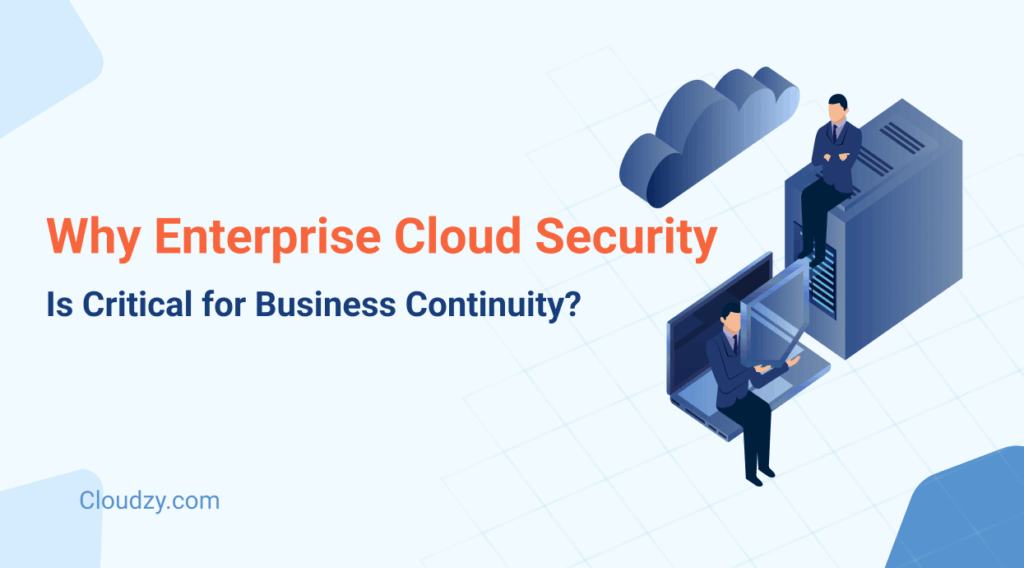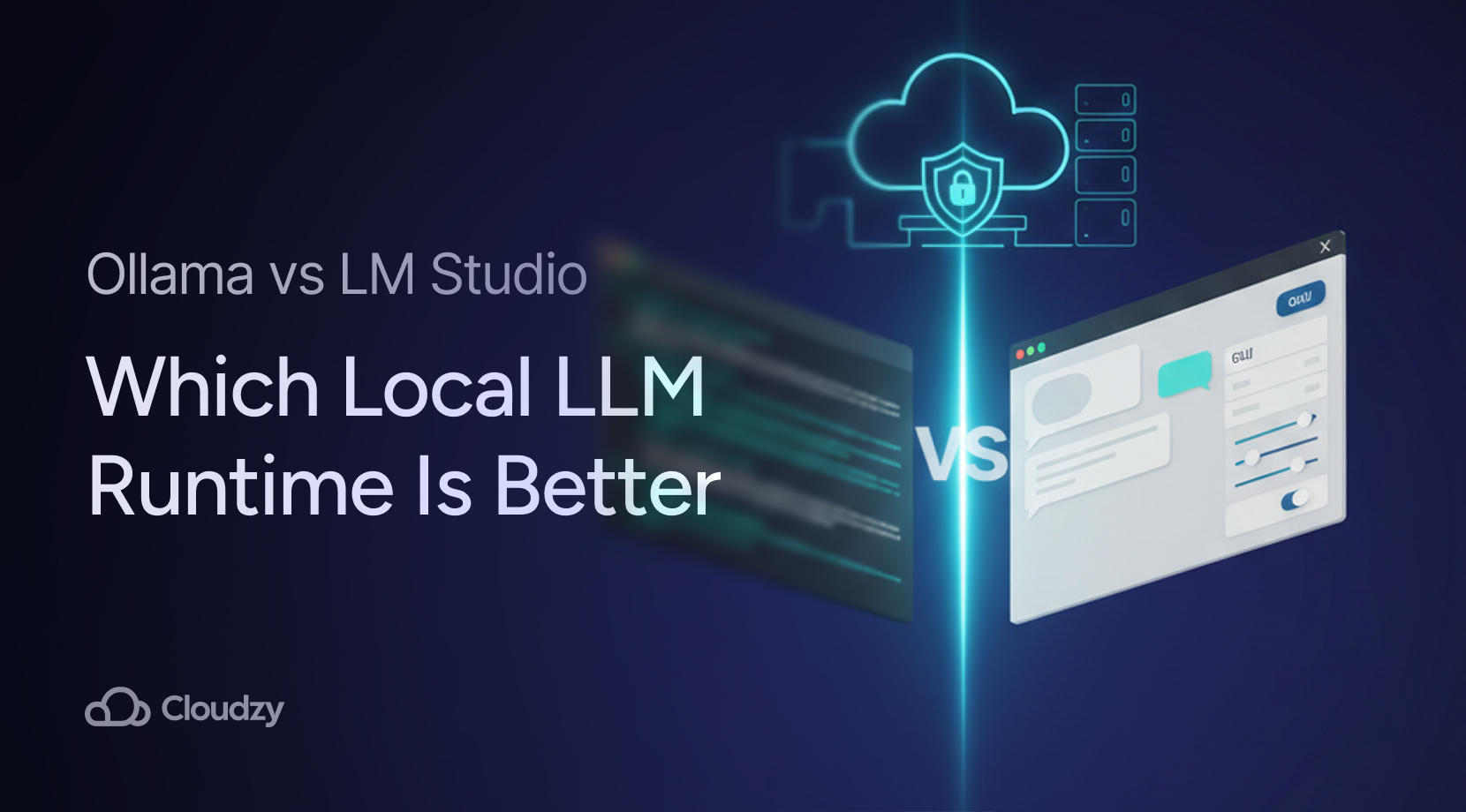Trust in the cloud by the public has increased in a great measure over the period of a decade, and even then, security itself is one of the top most concerns for business and technology leaders.
Enterprise cloud security is the set of practices, protocols, policies, and controls for how an organization secures its digital assets in the cloud. It remains the primary agenda—and quite rightly so. In an era of increasingly advanced cyber threats, cloud security for businesses is a necessity for protecting sensitive data, customer trust, and seamless business operations.
What is Enterprise Cloud Security?
Enterprise cloud security is a term that refers to the collection of measures, protocols, technologies, and best practices for securing cloud systems, data, and applications in an organization. It includes identity and access management, data encryption, anomaly detection, audit, and incident response.
A cloud enterprise is a company that mainly uses cloud computing technologies for its business processes rather than investing in physical servers or on-premise infrastructure.
Different cloud providers may offer similar security functionality but employ different tools and strategies. These variations arise from the particular architecture underlying the way each cloud is built and the different operational philosophies surrounding it.
Examples of Enterprise Cloud Security
Resources and strategies within the enterprise environments apply tools and techniques to maintain security. For every organization, the requirements and structures become different; therefore, enterprise cloud security solutions will range from identity management and threat detection to almost everything else needed to keep data integrity, compliance, and business continuity. In this section, there are examples of how organizations secure their cloud-based enterprise.
Putting practical examples such as this helps to bring out the understanding of enterprise cloud security:
- Identity and Access Management (IAM): Services that include AWS IAM services or Azure Active Directory provide a means whereby users determine on what resources they can access and under what particular conditions.
- Data Encryption: This means encrypting data both at rest and in transition ensures that any intercepted data is inaccessibly stored and does not have the decryption keys to read it.
- Security Information and Event Management (SIEM): Analyzes security data in near real-time with that event in mind in cloud SIEMs such as Splunk and IBM QRadar.
- Multi-Factor Authentication (MFA): Google Authenticator or Microsoft’s Authentication products will provide yet another level of protection for user login.
- Network Security Tools: Virtual firewalls and intrusion detection systems specifically designed for cloud environments help monitor and block malicious traffic.
Enterprise Cloud Security Best Practices
It is not enough to deploy tools alone because security comes from using a well-thought-out strategy. Recommendations for enterprise cloud security activities are expected to reduce risks while ensuring compliance and the protection of sensitive information across complex cloud environments. Here, some key practices are listed that enterprises could adopt to strengthen their posture in cloud security and to help long-term business flexibility.
Shared Responsibility Model
A cloud vendor has made provision for security on the infrastructure, but the business authenticates on data, applications, and user transport.
Identity and Access Control
Strict identity governance with the least privilege access principles applies—the permissions are audited regularly.
Continuous Monitoring
Deploy initial monitoring tools to cover all activities done within the cloud. Look for indicators of compromise.
Data Protection
Encrypt all sensitive data both in transit and, of course, at rest. Use secure APIs and maintain backups.
Compliance and Governance
Properly align the security controls to the relevant compliance requirements. Use tools for automating compliance auditing.
Incident Response Plan
Develop and test an incident response plan for clouds to prepare for a speedy response to a breach. Develop and rehearse an incident response plan for cloud scenarios.
Key Principles and Strategies of Enterprise Cloud Security
To begin with, enterprise cloud security should embrace the key principles and strategies that will enable the appropriate protection. These concepts inform security architectures that will be designed by an enterprise to be flexible, scalable, and adaptable. In this section, there are principles that every enterprise has to follow to secure its operations and data in the cloud.
| Principle | Description |
| Zero Trust Architecture | Trust none and verify all: continuously verify all users and devices trying to access the system. |
| Defense in Depth | Implement multiple layers of security to defend against different types of attacks. |
| Automation | Automate vulnerability patching, threat detection, and incident response to react faster than manual methods. |
| Data Sovereignty | Know where your data is stored and ensure it complies with local data protection regulations. |
| Vendor Management | Evaluate the security practices of third-party providers before integrating them into your cloud ecosystem. |
The Importance of Enterprise Cloud Security
Cloud services are fruitful vistas through which organizations deliver their corporate services easily. But along these lines is the strong demand for protecting important and sensitive assets and systems against advanced attack forms. Cloud security monitoring plays a crucial role by continuously tracking cloud environments to quickly detect, analyze, and respond to potential threats. It’s an essential component of what enterprise cloud security strives to accomplish: safeguarding beyond cyber threats, maintaining business continuity, preserving customer trust, and fulfilling compliance obligations. That comprehensive protection—including cloud security monitoring—is the primary reason for investing in enterprise cloud security, ensuring long-term success for any cloud-based enterprise.
Here are some of the important reason why enterprise cloud security matters:
- Sensitivity Maintenance: Customers, finance-related things, and IP must at all times be secured.
- Continuity of Business Operation: Breaches in security can lead to a stop in business processes. Good and effective types of security significantly minimize downtime for any business and make sure continuity.
- Customer Assurance: Customers expect to have their data secured. Strong and effective security increases and ensures trust.
- Compliance with Regulations: Noncompliance leads to penalties not only in monetary values but also with reputation as well.
- Adapt to Emerging Threats: Cyber threats are constantly changing. Whatever enterprise, dynamic security measures should be engaged to remain ahead.
What are the Threats to Enterprise Cloud Security?
Although the cloud offers a lot of advantages, it also gives new risks to which organizations have to react. Cloud risks for enterprise cloud security regularly evolve, ranging from data leakage and insider threats to misconfigurations. To take the first step towards building a safer cloud-based business, here are the biggest security risks business organizations face when working in the cloud.
- Data Breaches: Confidential data is breached by unauthorized actors because of flawed configurations or exploits.
- Account Hijacking: Infiltrators get access to the user accounts using phishing, credential stuffing, or poor passwords.
- Insider Threats: Company employees or contractors using their privilege to steal or tamper with data.
- Insecure APIs: Flawfully implemented APIs leave backdoors into cloud services.
- Denial of Service (DoS) Attacks: Overwhelming cloud services to generate outages and disruptions.
- Misconfigured Cloud Storage: Wrong security settings within storage areas expose data in public view.
Want a high-performance Cloud VPS? Get yours today and only pay for what you use with Cloudzy!
Get Started HereConclusion
The new cloud computing strategy has significantly changed the manner in which enterprises function. It indeed offers great advantages regarding flexibility, scalability, and innovation. However, the evolving threat landscape requires strong enterprise cloud security strategies. Data protection, customer trust maintenance, regulatory compliance, and business continuity depend on proactive enterprise cloud security. Leveraging robust Cloud Security Tools is essential to safeguard data and infrastructure effectively.
If your organization is now adopting the cloud-based enterprise model, putting in place security frameworks, practices, and appropriate cloud security tools will be the most important long-term investment. Today’s organizations view security in the cloud as a crucial requirement—not an optional consideration.



